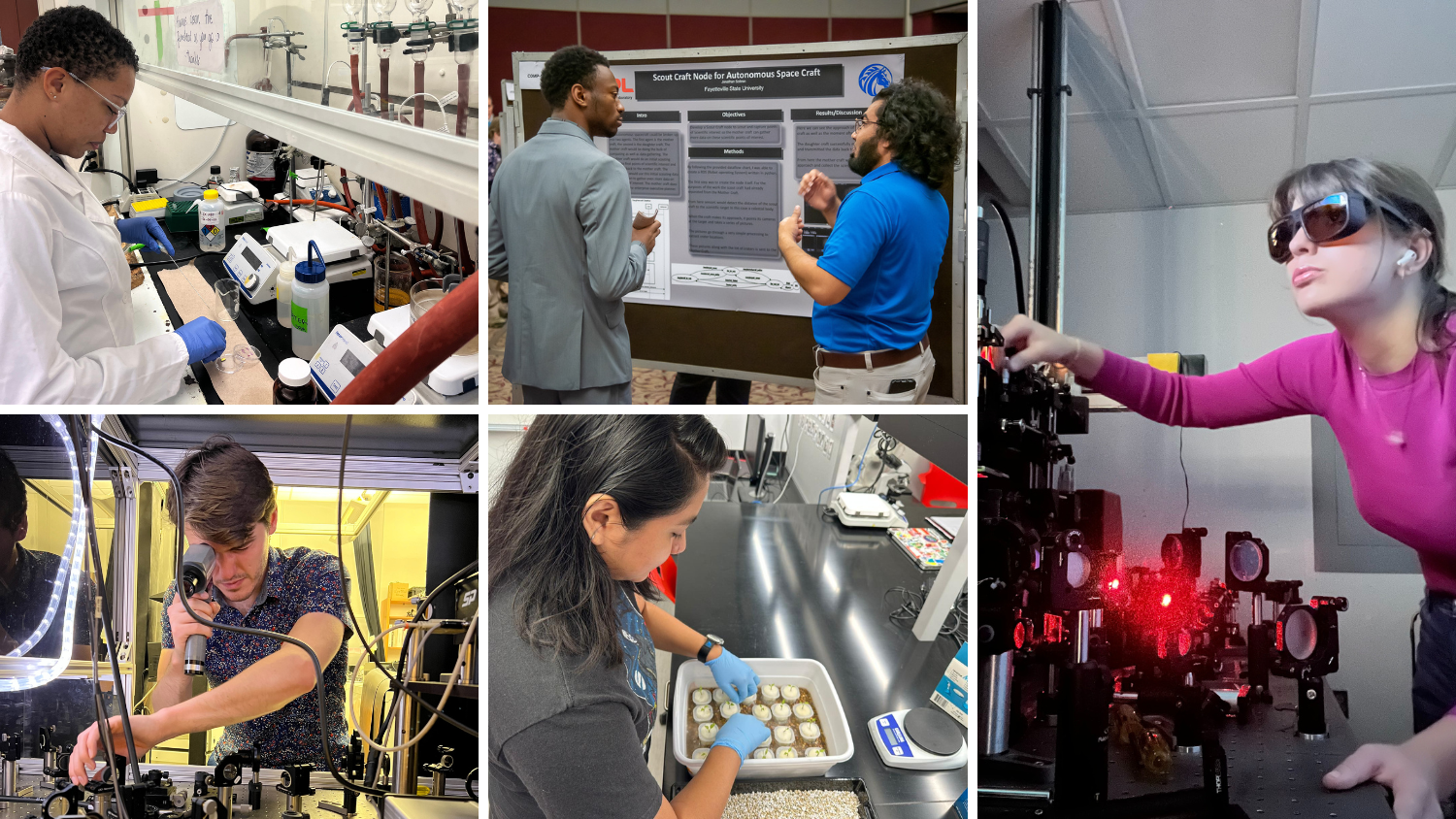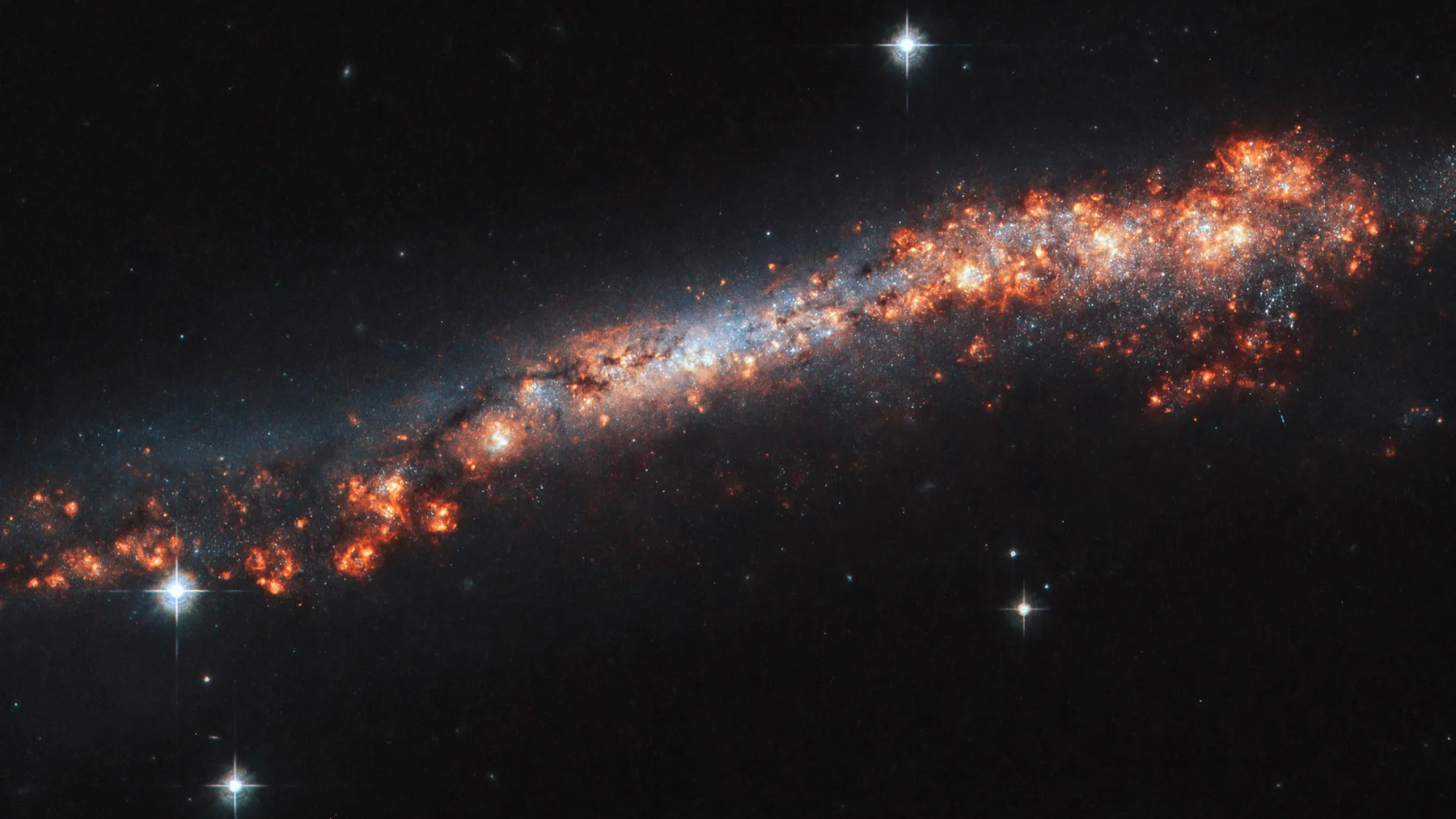Annual NC Space Symposium Returns In-Person to Celebrate Student Research
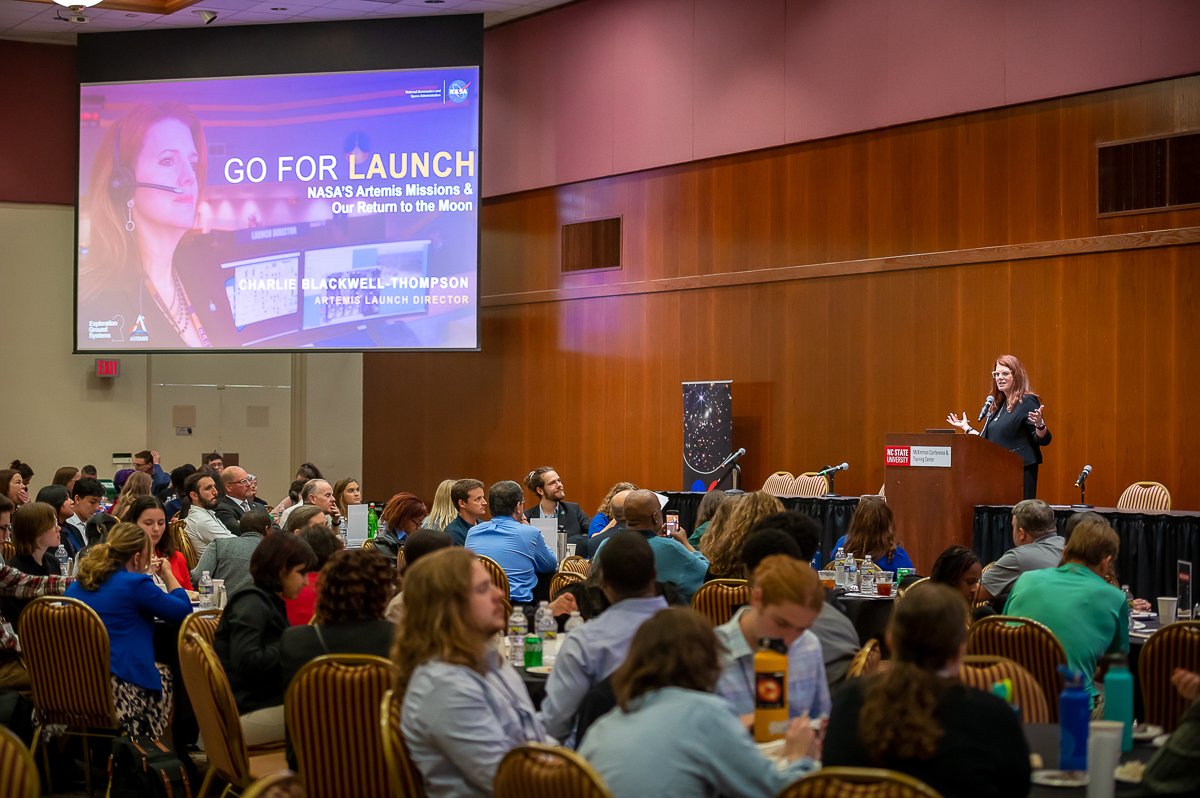
On April 21, North Carolina Space Grant hosted its annual NC Space Symposium at the McKimmon Center in Raleigh. The Symposium brought together over 200 students and professionals from all over the state of North Carolina to celebrate student research and learn from experts.
“The symposium truly covered the spectrum of space science topics, here in North Carolina and from our NASA expert partners,” Susan White, NC Space Grant director, said.
The day-long event featured NASA speakers including the Artemis Launch Director, Charlie Blackwell-Thompson who gave the keynote presentation and NASA Langley Research Center Chief Technologist, Julie Williams-Byrd who gave the opening presentation. In addition, industry professionals, government employees, academic researchers and students attended and presented at the event.
Celebrating Student Research
As a celebration of student research, the event focused on students and the research they have completed over the past year in addition to student teams who have competed in competitions where they put their skills to the test.
“Our ongoing goal with the Symposium events is to provide a forum for students to share their space-related research with peers and professionals from the aerospace community,” Jobi Cook, associate director of NC Space Grant, said.
Approximately 149 students attended the event with over 50 students giving poster presentations in two special sessions. Also, six students gave lightning talks and six student teams displayed their hardware and gear such as robots, rovers and rockets. Many of the attending students had received NC Space Grant support for their research or team-competition activities.
Students presented research from an array of disciplines including astronomy and astrophysics, biological sciences, computer science, Earth and environmental sciences, mechanical and aerospace engineering, and physical sciences.
“I valued the experience of getting to present my poster the most. Any chance to talk about your research is a great opportunity, particularly with those that are not familiar with what you exactly do,” Sadie White, student at Winston-Salem State University and NC Space Grant MSI STEM Bridge Scholar, said. “The best way I become familiar and comfortable with talking about my work is by teaching others about it.”
Throughout the day, students also had the opportunity to network — and learn career tips from experts in a special career panel. They heard from representatives at Collier Aerospace, KBR, NC Department of Transportation, NASA Marshall Space Flight Center and Sierra Space.
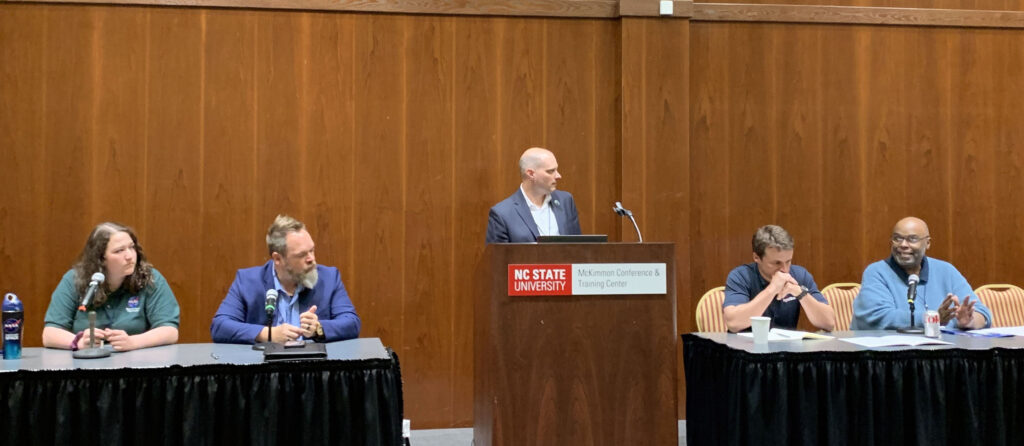
A Look at the Student Poster Sessions
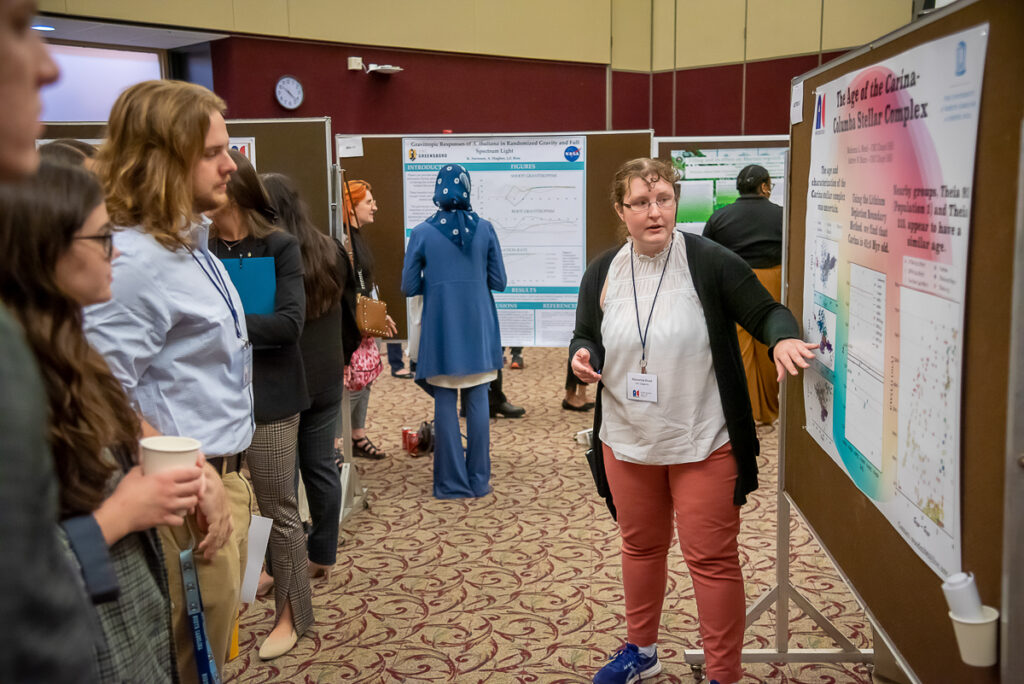
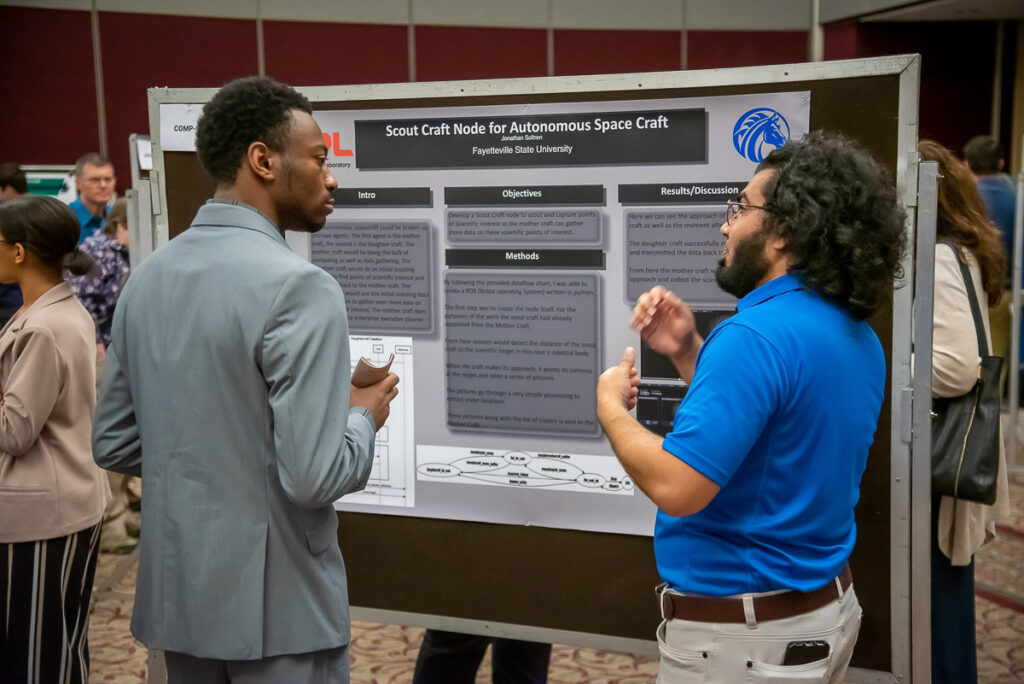
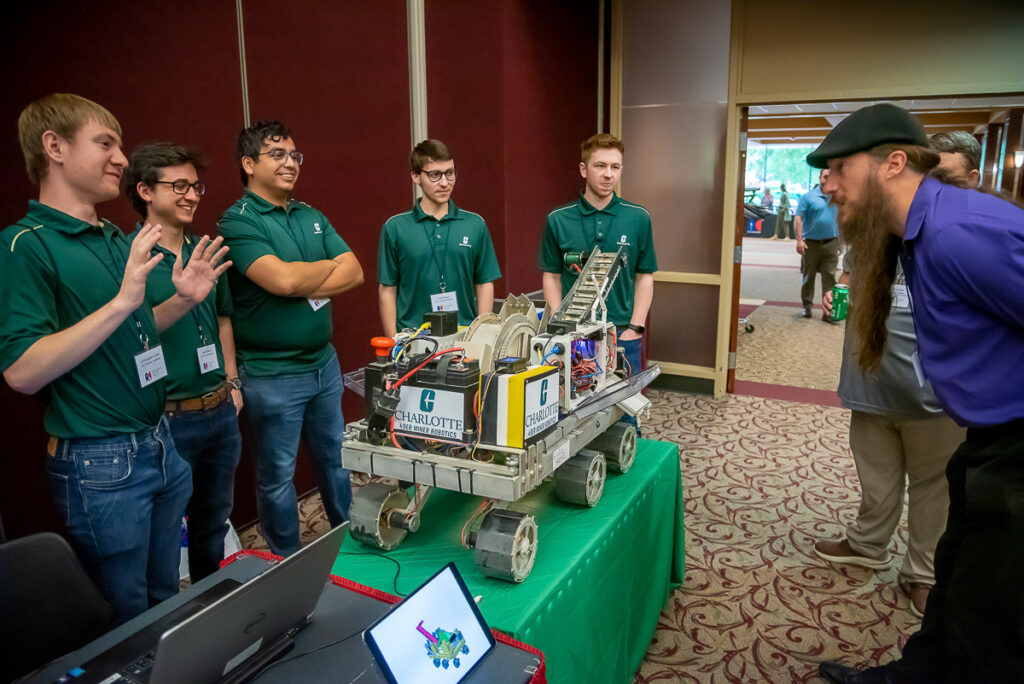
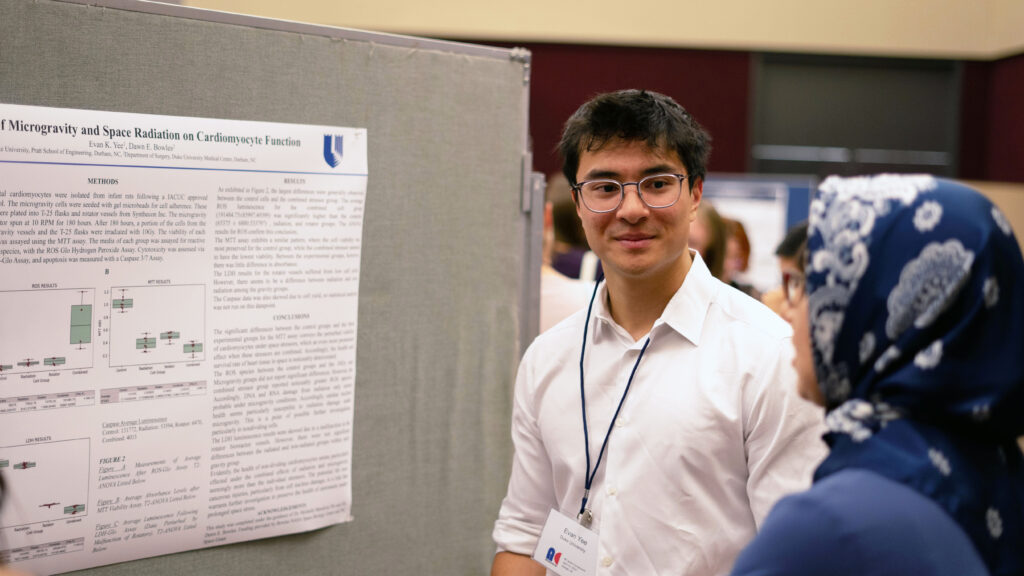
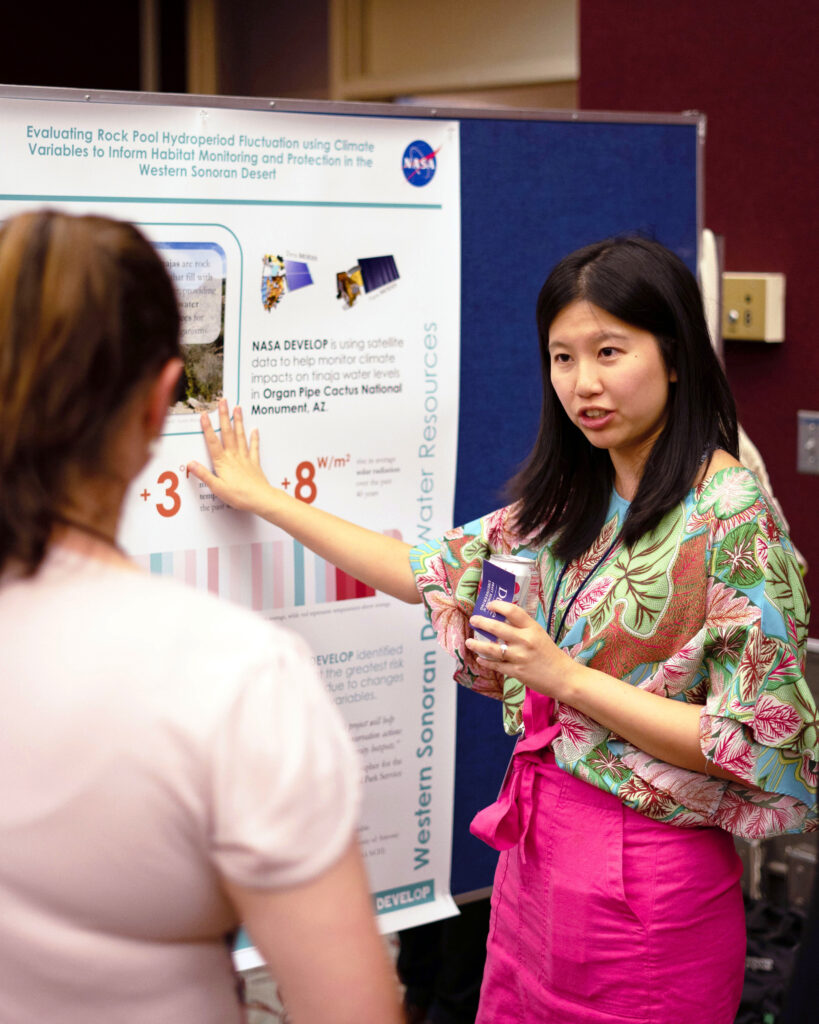
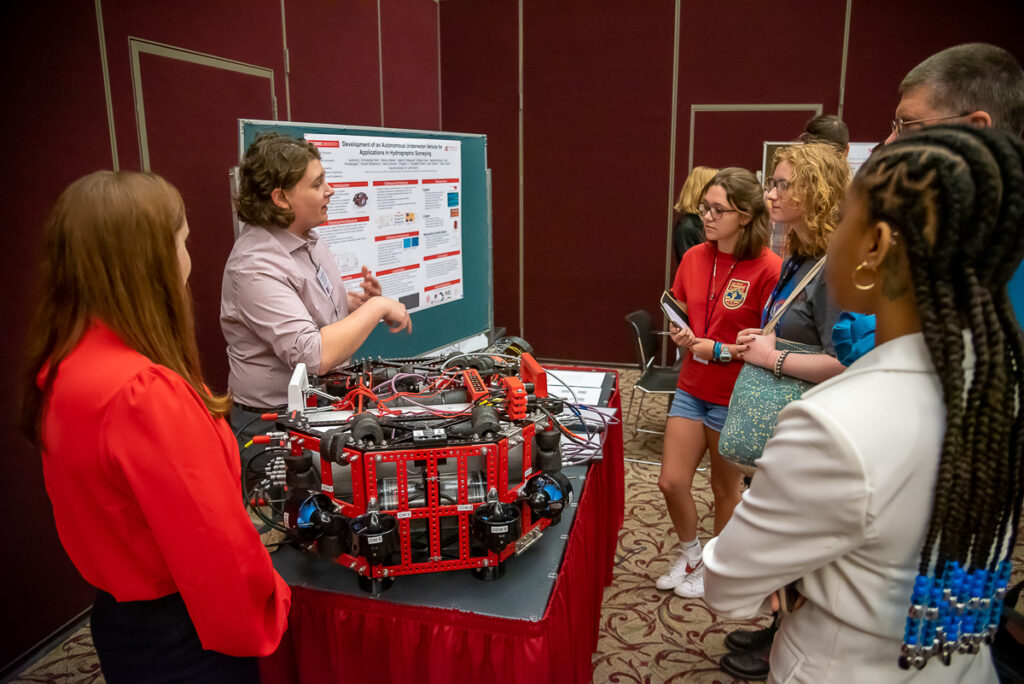
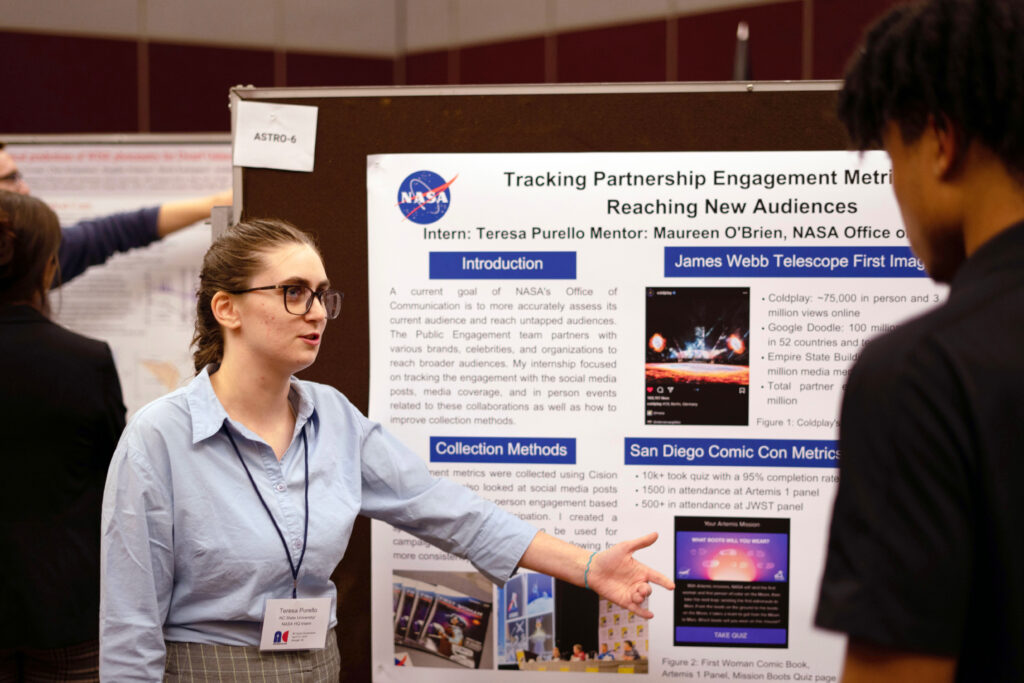
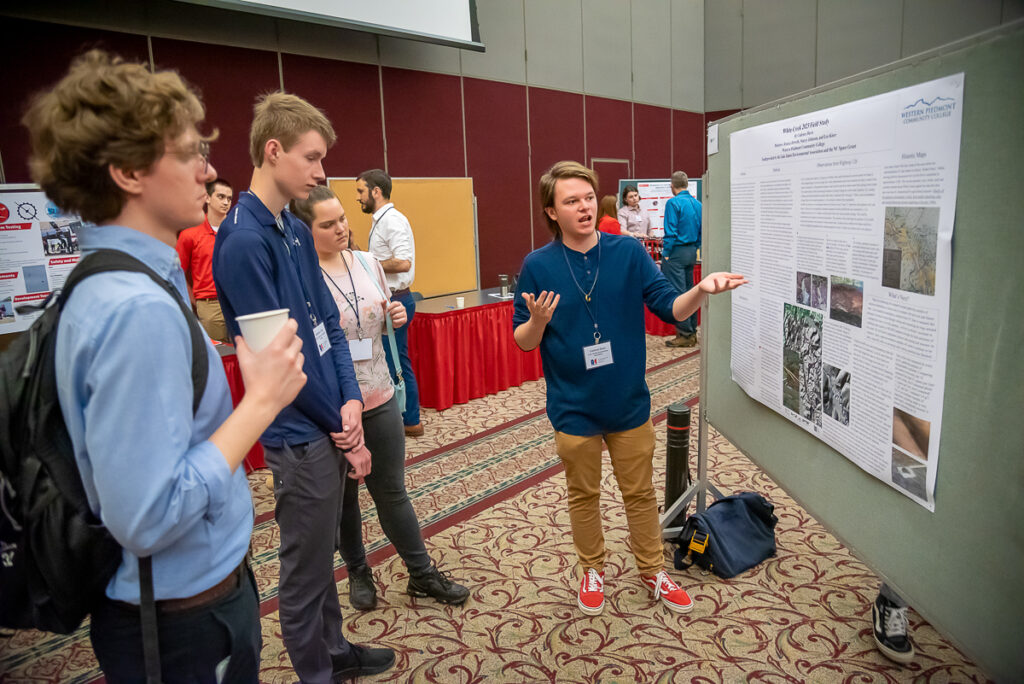
To the Moon and Beyond
In Charlie Blackwell-Thompson’s keynote, she addressed the attendees as the “Artemis Generation,” the generation that will return to the Moon, and spoke about the future of space exploration.
On November 16, 2022, she launched Artemis I, the first in a series of missions bringing human exploration back to the Moon and eventually, Mars. Artemis I was an uncrewed Moon-orbiting mission that lasted approximately 25 days and traveled 1.4 million miles. The Orion spacecraft splashed down December 11, 2022.
Why the moon? “It’s a treasure trove of science,” she said in her keynote. “The moon is a great testbed for scientific discovery.” Returning to the moon provides the opportunity to generate a wealth of data and collect physical samples from different locations NASA hasn’t been to before. In addition, it’ll advance technology, inspire the Artemis Generation, create economic growth and better all of humanity by learning to live on other planets.
NASA is currently analyzing data collected from the Artemis I mission and incorporating insights as they prepare for Artemis II, whose crew was announced on April 3. NC State and NC Space Grant alumni, Christina Koch, was named as mission specialist on this crew. “It is exciting for me as a launch director to now have a named crew that is going to fly for Artemis II,” Blackwell-Thompson said.
“The Artemis Generation, this is for you,” she said. “And it is for you because you are the generation that will take us to Mars and you are the generation that will determine where we go next and how we go, and I can’t wait to see where that is.”
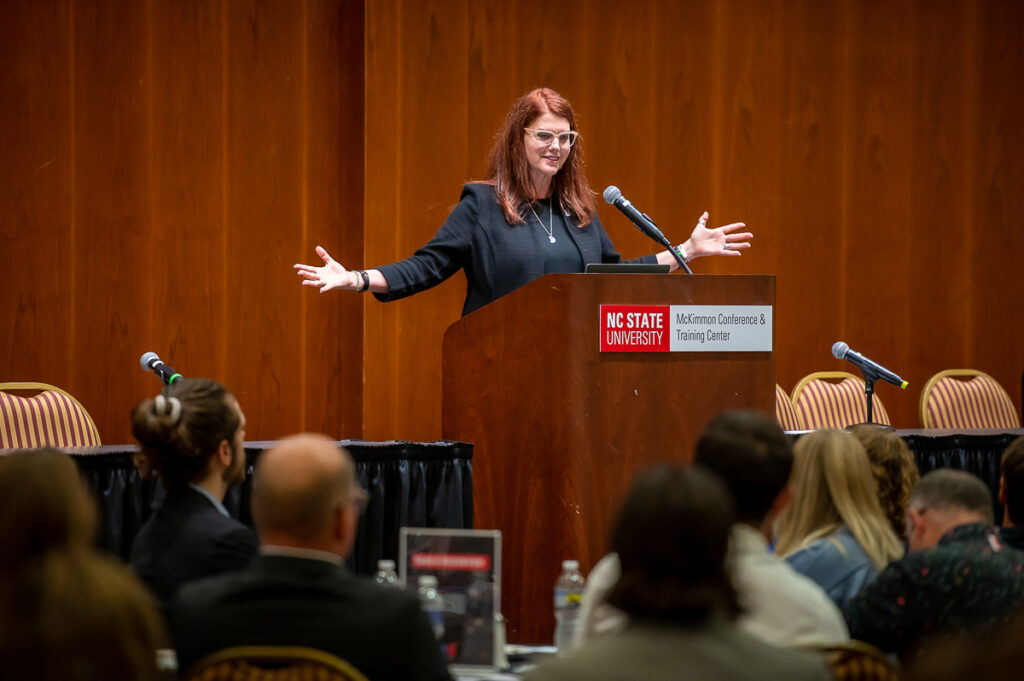
Read about launch day from the launch director’s point of view in a recent NC Space Grant Q&A article with Blackwell-Thompson.
Advancing STEM
Williams-Byrd, opening speaker of the event, presented about STEM opportunities at NASA. She is a champion of STEM education and engagement, often mentoring young scientists and participating in community outreach activities.
In addition to sharing inspiring words and tips for building a STEM career, she presented information about NASA’s opportunities for young scientists, including internships and fellowships, the Pathways Programs, and even full-time jobs for recent graduates.
“The one thing that I like the most about working at NASA is that NASA encourages and gives us the time and the resources to engage with young people about STEM careers. That’s one of my passions,” Williams-Byrd said in a recent interview with NC Space Grant. “Whether it’s judging a science fair or attending symposiums, encouraging young people that a career in STEM is something they can obtain is what I have enjoyed most. I wouldn’t trade it for anything.”
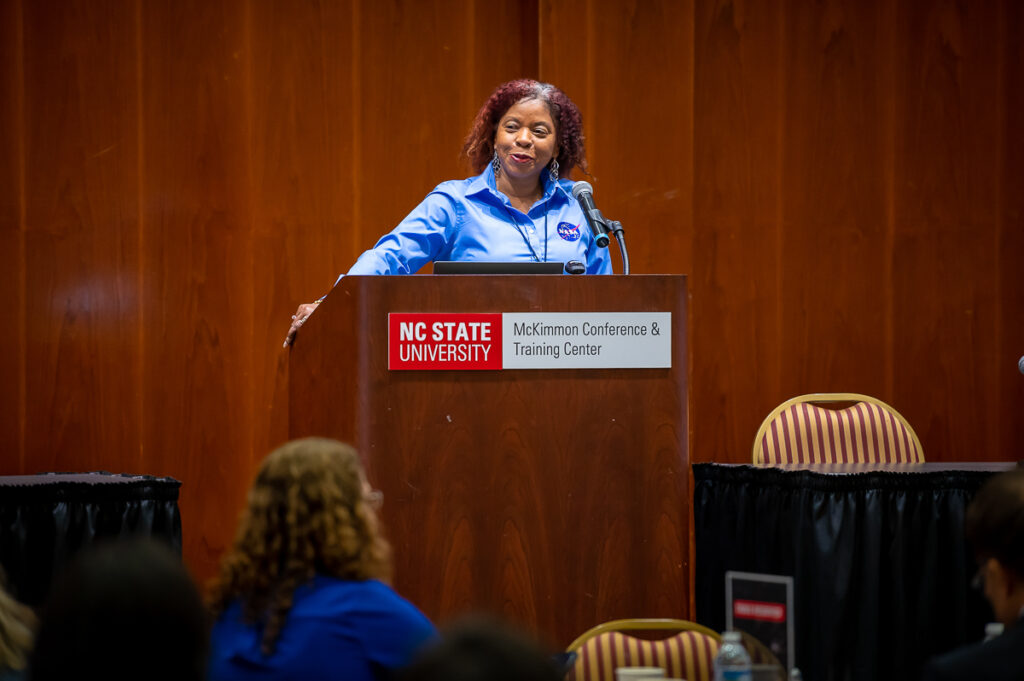
Space Science, Technology and Future Flight
The day’s agenda was divided into three sessions, which featured guest speakers and their research areas or professional expertise related to space science, space technology and future flight.
Space Science
The space science session featured speakers from diverse disciplines and their innovative research applicable to space exploration including air quality, space botany, and planet discovery.
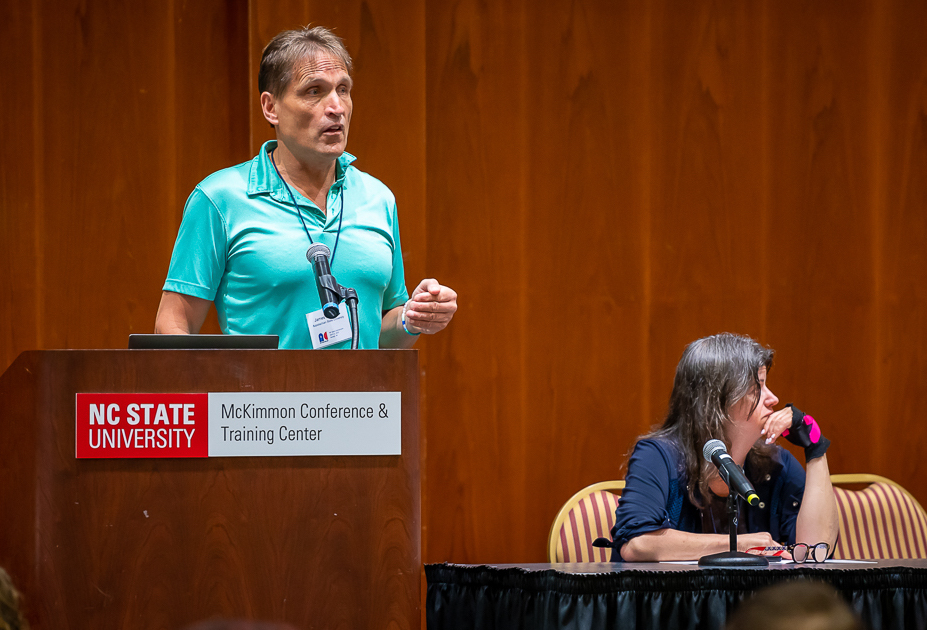
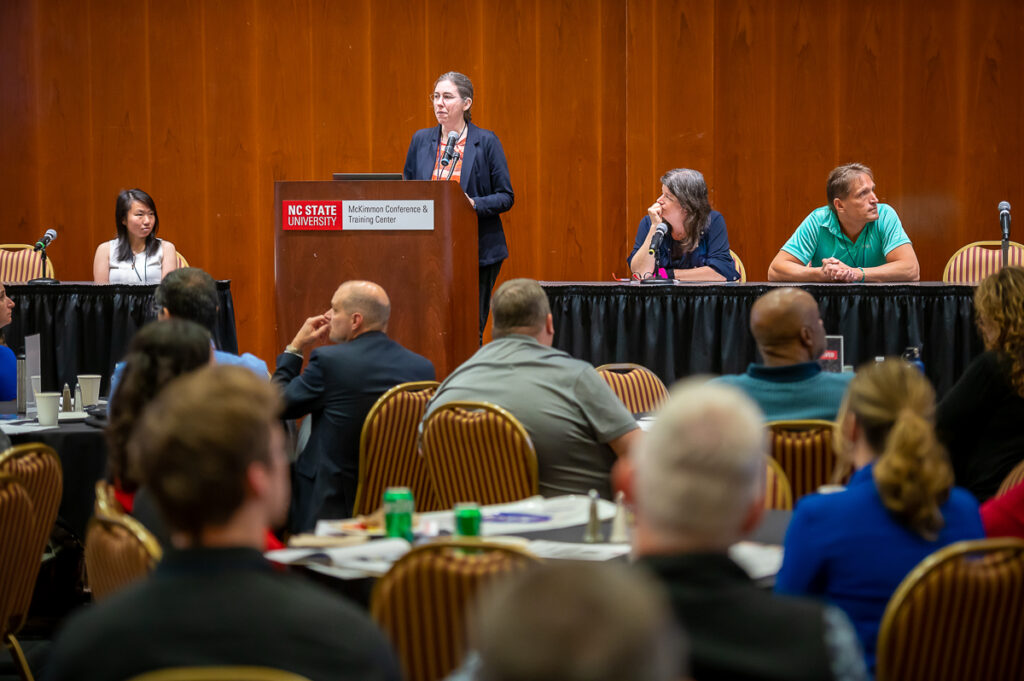
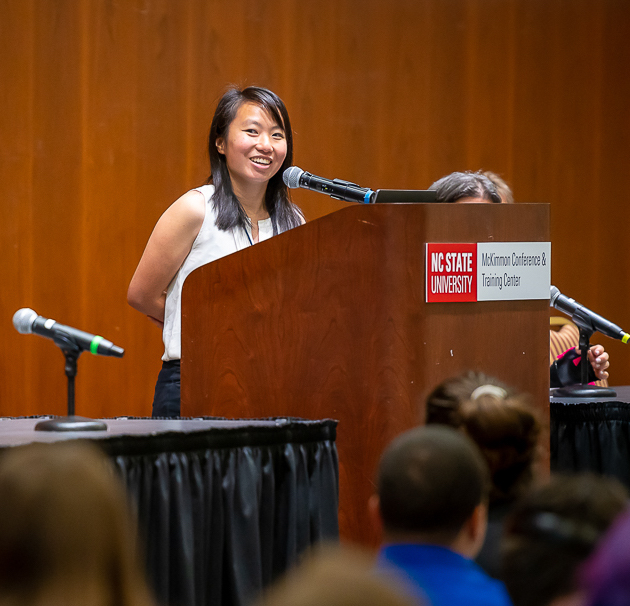
Space Technology
Technological innovation drives exploration, and space exploration will make a difference here on Earth. Demonstrating this, the space technology session speakers spoke about a variety of topics such as orbital reefs, robotic exoskeletons and augmented reality.
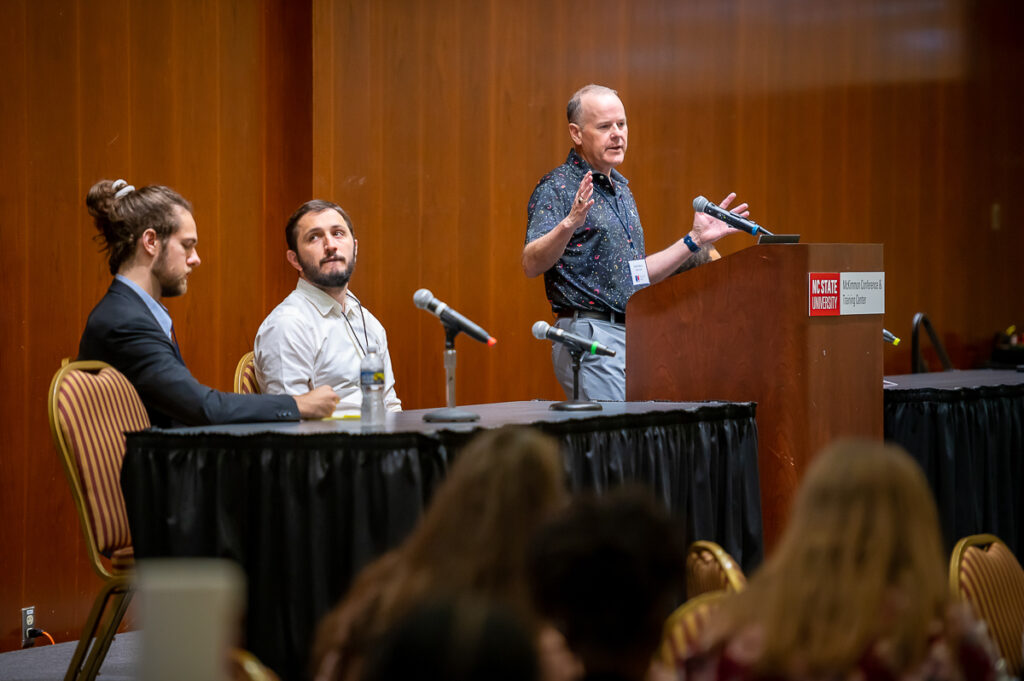
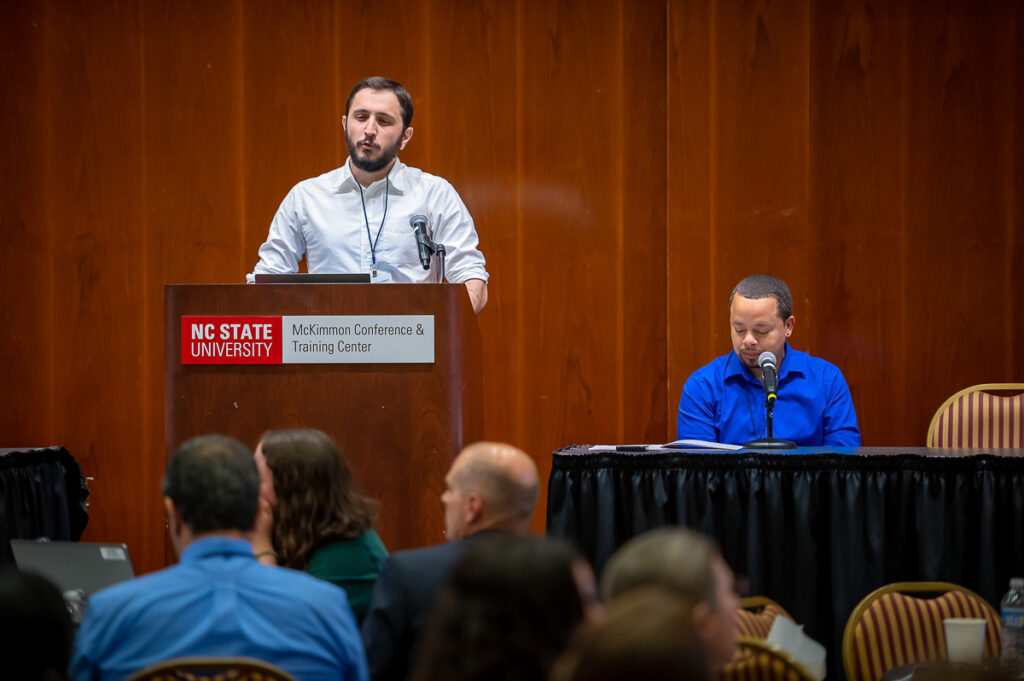
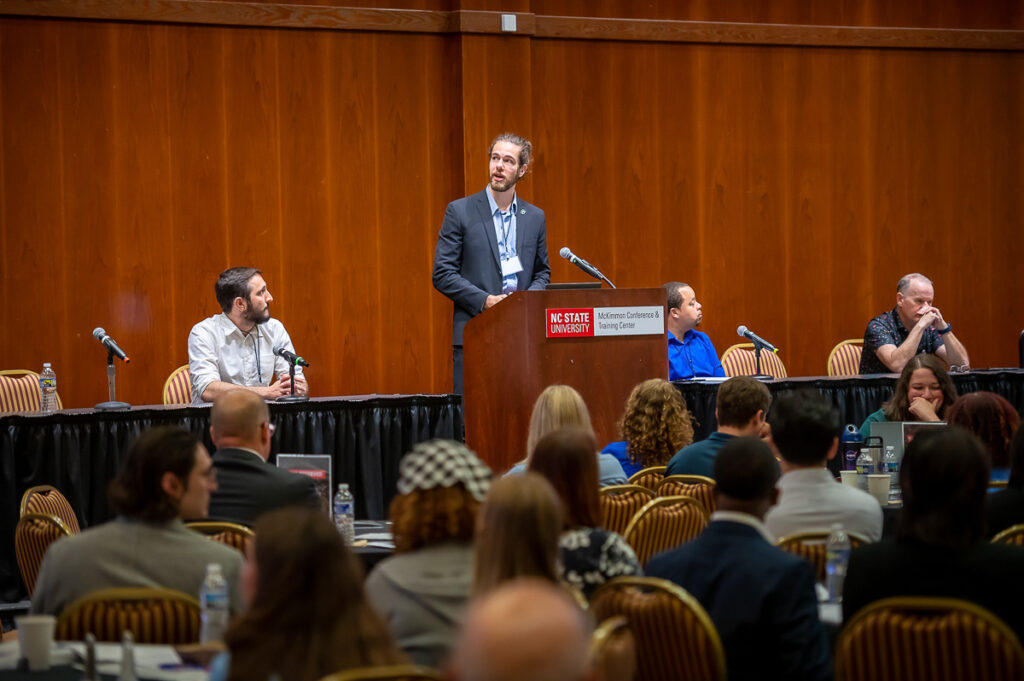
Future Flight
Advancements in aviation and aerospace are on the move in our state and across the nation. In this session, speakers highlighted cutting-edge research and trends in aviation in the state.
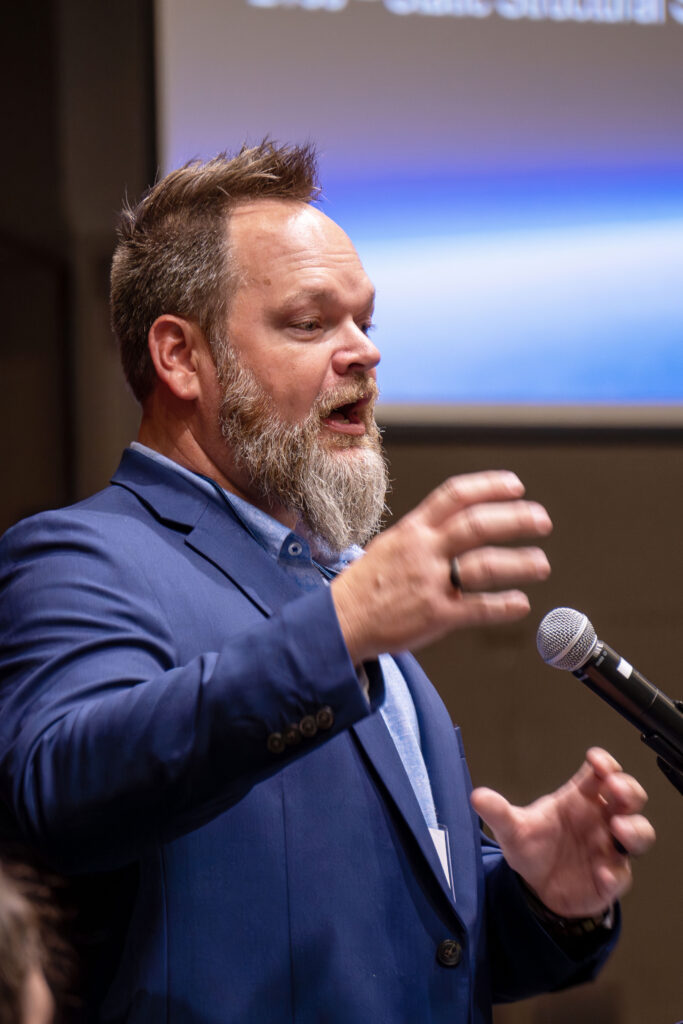
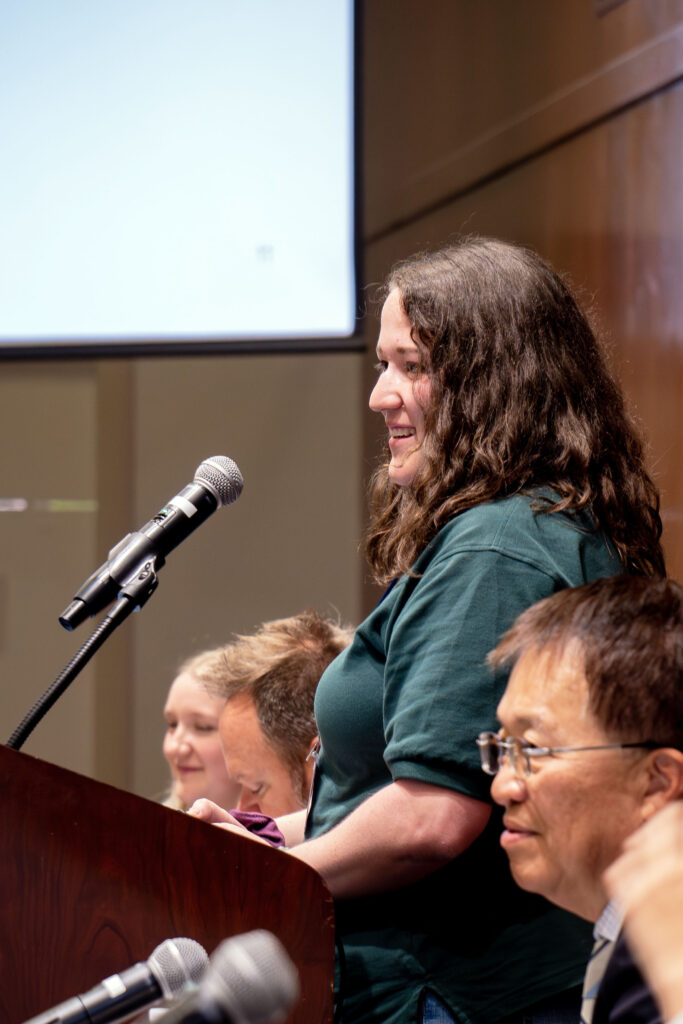
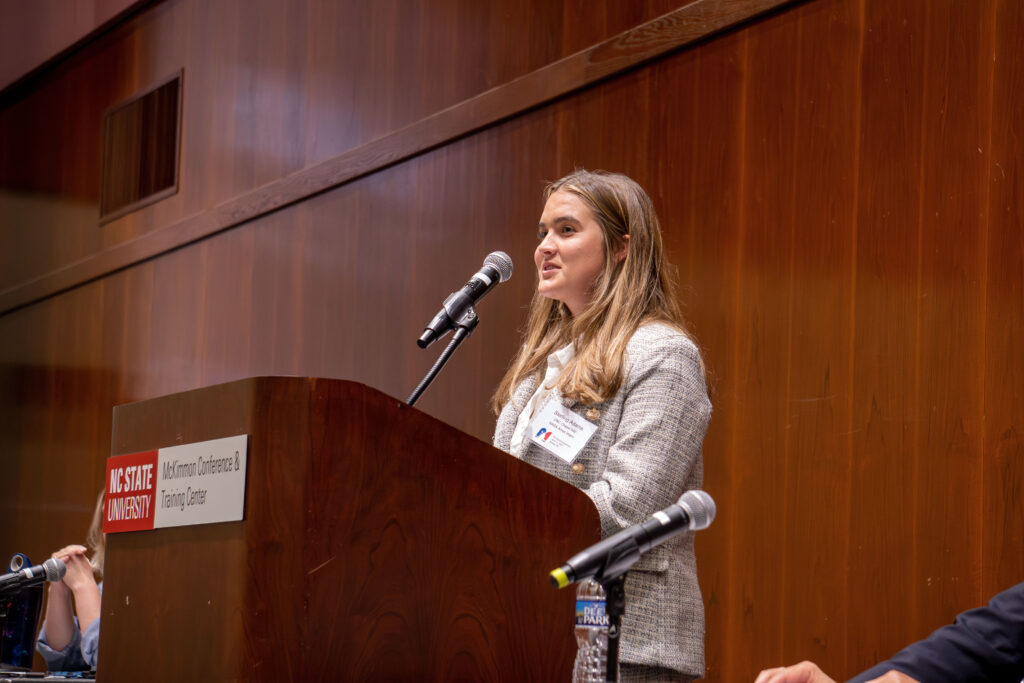
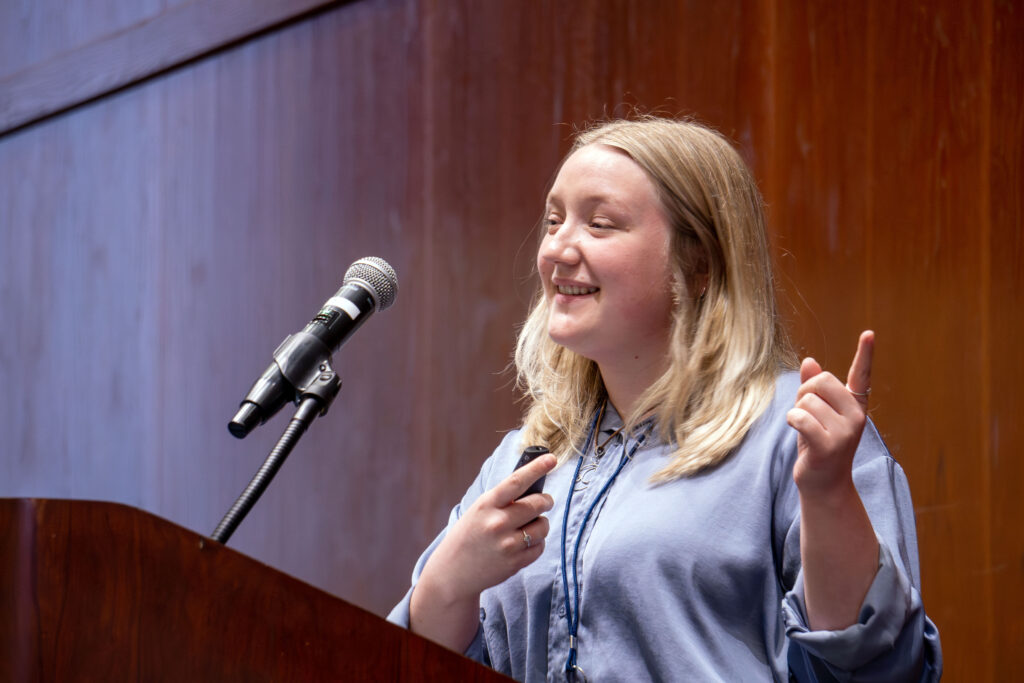
Thank you, sponsors!
Thanks to our Mars level sponsors, KBR and The University of North Carolina System, and Moon level sponsor, Sierra Space, for helping make this event possible.
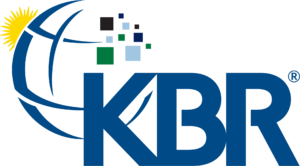

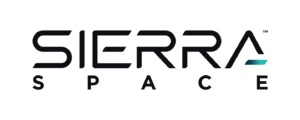
Save the Date
Please save the date for next year’s event, 2024 NC Space Symposium: Explore Earth on March 22, 2024 at McKimmon Center in Raleigh.
Stay up to date on funding opportunities, requests for proposals, events and other opportunities at ncspacegrant.org, @NCSpaceGrant on Twitter and Instagram, and NASA / North Carolina Space Grant on Facebook and LinkedIn.
☽
- Categories:
